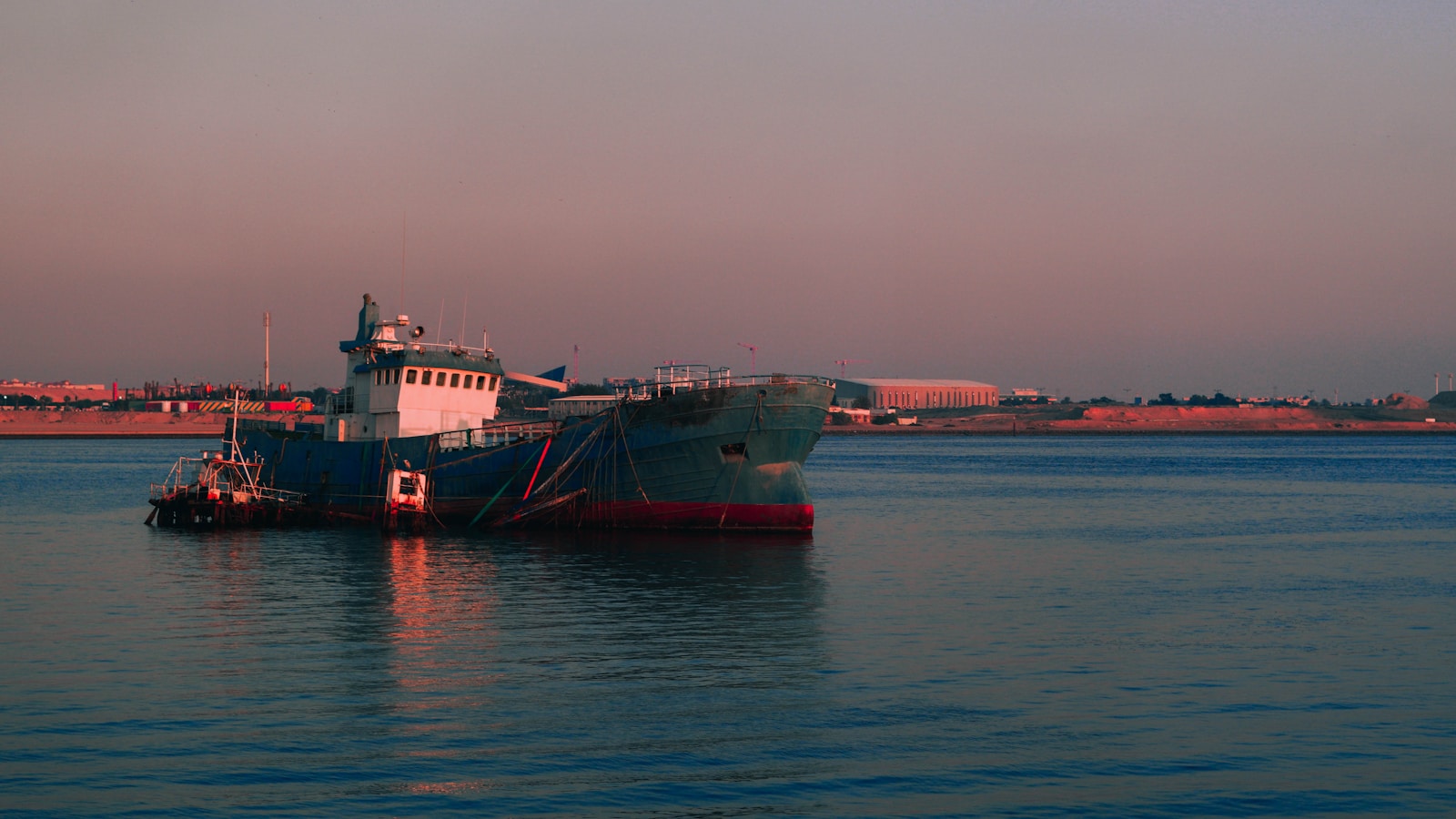Recent Amendments To The Ship Arrest And Attachment Laws In UAE

In the UAE, ship attachment is regulated by both national legislations and international treaties to which the country is a party. Key legal frameworks include the Federal Decree Law No. 43 of 2023 on Maritime Law, which supersedes the previous UAE Maritime Code of 1981 and establishes new regulations for ship attachment. The recent enactment of Federal Decree Law No. 43 of 2023, which came into effect on March 29, 2024, marks a significant milestone in modernizing the country’s approach to maritime regulations. This new Maritime Law aligns UAE practices more closely with international standards while addressing emerging challenges in the sector. The UAE Civil Procedure Law also provides the general procedures for civil lawsuits, encompassing the process of ship attachment.
Table of Contents
In the UAE, “Ship Attachment” and “Ship Arrest” are often used interchangeably in general discussions, particularly when referring to the seizure of vessels to secure maritime claims, but they carry distinct legal nuances. Ship Arrest specifically refers to a court-ordered detention of a vessel to secure claims directly tied to maritime activities, such as unpaid debts or damages arising from maritime operations. Ship Attachment, however, has a broader scope and can involve seizing a vessel or other assets to secure general claims (including non-maritime debts) or to establish jurisdiction over a defendant, making it a more comprehensive legal tool. While both terms relate to vessel seizure, “Ship Arrest” is a specialized subset of “Ship Attachment”, with the latter encompassing a wider range of claims and purposes.
Article 53 of the Maritime Law governs the legal framework for pre-judgment attachments. The provision sets out the conditions and requirements for securing a vessel before a final judgment is rendered in a maritime dispute.
Article 53 of Federal Decree-Law No. 43 of 2023 is outlined as follows:
- Prejudgment attachment shall be created on the ship in satisfaction of a maritime debt, by a decision of the competent court.
- The debt shall be considered of a maritime nature if it arises out of any of the following reasons:
a. The destruction or damage sustained as a result of the use of the ship;
b. Losses in human lives or physical injuries caused by the ship or arising from its use;
c. Salvage operations or salvage agreements, even if the ship or its cargo causes imminent damage to the environment;
d. The damage that the ship may cause to the environment, the coastal strip or the interests connected therewith, as well as the resulting expenses and costs in relation to avoiding, reducing or removing the damage;
e. The costs for raising a sunken, wrecked, stranded or abandoned ship and the expenses for transporting and restoring the same, stopping its harmful effects or destroying it;
f. Any agreement concluded for the purpose of the use of a ship, whether contained in a charter party or other document;
g. Any agreement concluded with regard to the carriage of cargoes or passengers aboard a ship, whether contained in a bill of lading, travel ticket or other document;
h. Loss or damage to cargoes or baggage carried aboard a ship;
i. General Average Losses;
j. Ship towage;
k. Ship pilotage;
l. The cargoes, materials, supplies, fuel, equipment or containers supplied to the ship, as well as the services provided thereto in order to operate, manage maintain or safekeep the ship;
m. Building, rebuilding, repairing, converting or outfitting a ship;
n. Fees for ports, canals, basins, harbors and other waterways;
o. Remunerations and other sums due to the captain and crew in connection with their duties aboard the ship, including repatriation expenses and social insurance contributions payable on their behalf;
p. Amounts paid on behalf of the shipowner or ship’s husband;
q. The insurance premiums for the ship and its Takaful insurance contributions that are obligated to be paid by the shipowner or charterer of the bareboat or their representative;
r. Any commissions, brokerage or agency expenses payable by the shipowner, its charterer or their representative;
s. Any dispute over ownership or possession of the ship;
t. The dispute over the co-owners of the ship and the rights and profits resulting from its use;
u. Mortgage of the ship or any other in-king guarantee executed on the ship; and v. Any dispute arising from the ship sale contract.
Key aspects of the Article 53
Pre-Judgment Attachment: Securing Claims Before Final Verdict
This legal remedy empowers a competent UAE court to issue an order seizing a ship before a final judgment has been rendered in a maritime dispute. In essence, the court can authorize the detention of the vessel if there’s a reasonable belief that a maritime debt exists and that the attachment is necessary to ensure the creditor can eventually recover what is owed. This proactive measure prevents the shipowner from potentially moving the asset beyond the creditor’s reach, thereby preserving the possibility of a future successful claim.
Defining Maritime Debt
The Maritime Law provides a comprehensive framework for defining Maritime Debts, covering a broad spectrum of circumstances under which a debt is classified as “maritime” and may justify the attachment of a vessel. This definition extends beyond conventional shipping-related liabilities and includes various financial obligations arising from the ownership, management, and operation of a ship.
To clarify the scope of maritime debts under UAE law, the following scenarios are recognized as grounds for ship attachment:
- Physical Damage: Any harm or destruction caused by a vessel to other ships, port infrastructure, or property, including collisions, allisions (impacts with stationary objects), and other incidents where the vessel is responsible.
- Personal Injury and Loss of Life: Claims related to fatalities or physical injuries resulting from the vessel’s operation, including those affecting crew members, passengers, or third parties.
- Salvage Operations: Compensation for salvage services provided to a distressed vessel or to mitigate environmental harm, regardless of a formal salvage agreement.
- Environmental Damage: Costs incurred due to pollution or ecological harm caused by the vessel, including oil spills and associated cleanup efforts.
- Wreck Removal: Expenses related to raising, dismantling, or neutralizing a sunken, stranded, wrecked, or abandoned vessel to prevent hazards.
- Ship Usage Agreements: Financial obligations arising from charter contracts or other agreements governing the use of a vessel.
- Cargo and Passenger Transport Agreements: Debts linked to contracts for the transportation of goods or passengers, whether documented in a bill of lading, ticket, or similar instrument.
- Cargo Loss or Damage: Claims for lost or damaged goods or baggage transported on a vessel.
- General Average Contributions: Costs shared proportionally among stakeholders in a maritime venture when losses occur under the principle of general average.
- Towage Services: Payments for the towing of a vessel.
- Pilotage Fees: Charges for the guidance of a ship by a maritime pilot through ports or waterways.
- Ship Supplies and Services: Costs associated with provisioning, fueling, maintaining, repairing, or equipping a vessel, including spare parts and essential services.
- Ship Construction and Repair: Financial liabilities related to the building, modification, renovation, or repair of a vessel.
- Port and Waterway Charges: Fees for utilizing ports, canals, harbors, and other navigational channels.
- Crew Wages: Compensation owed to the captain and crew, including repatriation costs and social insurance contributions.
- Shipowner Expenses: Amounts paid on behalf of the shipowner or ship manager.
- Insurance Premiums: Outstanding payments for vessel insurance, including Takaful contributions required by shipowners or charterers.
- Commissions and Brokerage Fees: Costs incurred for commissions, brokerage, or agency services provided to shipowners, charterers, or their representatives.
- Ownership Disputes: Legal conflicts over the vessel’s ownership or possession.
- Co-ownership Disputes: Disagreements among co-owners regarding rights, responsibilities, or profit distribution.
- Mortgages and Secured Debts: Financial claims arising from a mortgage or other security interest placed on a vessel.
- Ship Sale Contract Disputes: Legal disputes arising from contractual agreements related to the sale of a vessel.
This broad legal framework highlights the extensive range of maritime debts that may lead to vessel attachment under UAE law. Courts assess each case individually to determine whether a maritime debt is valid and whether ship attachment is a justified course of action.
Major changes in the 2023 Maritime Law
1. Expanded Definition of Maritime Debts
The revised law expands the definition of maritime debt to encompass a wider range of liabilities. It now covers not only damages and losses resulting from the operations of a vessel but also includes costs linked to environmental harm and the necessary expenses for wreck removal. In addition, the scope of maritime debt has been broadened to include debts arising from the provision of goods and supplies, port fees, insurance premiums, as well as commissions and brokerage fees. Furthermore, it also addresses financial obligations stemming from disputes related to vessel sale contracts, ensuring a more comprehensive approach to maritime debt.
2. Sister Ship Arrest
A major development in the new law is the introduction of the sister ship arrest provision. Under this updated regulation, creditors are now allowed to seize not just the vessel directly linked to the maritime debt but also any other ships owned by the debtor at the time the arrest application is made. This amendment significantly strengthens the position of creditors, as it broadens their ability to secure outstanding claims by offering additional legal avenues for enforcement. By allowing the arrest of multiple vessels owned by the debtor, this provision provides creditors with a more robust mechanism to ensure the recovery of debts.
3. Counter-Security Requirements
The new law requires the party initiating the vessel arrest to provide a financial guarantee to cover any potential damages that could result from the detention. This provision is designed to protect the vessel, its crew, and other interested parties by ensuring that any losses or harm caused by the arrest are compensated. By implementing this requirement, the law helps maintain the safety and security of the vessel during the arrest period, while also minimizing the risk of financial or operational disruptions that might otherwise occur as a result of the vessel being detained. This safeguard balances the interests of creditors with the need to protect the vessel’s operational integrity.
4. Acceptance of Letters of Guarantee
A significant enhancement in the legal framework is the recognition of letters of guarantee issued by Protection and Indemnity (P&I) Clubs or other approved financial institutions. These guarantees, which require court approval, provide an alternative means for securing the release of a vessel that has been arrested. This development introduces greater flexibility for shipowners and other parties involved, allowing them to use a financial guarantee from reputable institutions to facilitate the release of detained vessels, rather than relying solely on cash deposits. This adjustment improves the process by offering more options for securing a prompt resolution, while maintaining safeguards through court oversight.
5. Procedural Timeframes
The updated law introduces changes to the procedural timeframes for ship attachment, aiming to streamline the process. The party seeking the arrest of a vessel is now required to file the substantive case within five working days from the date the arrest order is issued, shortening the previous deadline of eight days. This change accelerates the legal proceedings, ensuring a quicker resolution. Furthermore, courts are now obligated to schedule a hearing within 15 days after the arrest order is made, reducing delays and enhancing efficiency. In addition, the law has clarified the deadline for filing an appeal, which must now occur within 15 days from the date the judgment is issued, providing clearer guidance on the timeline for challenging decisions. These revisions are designed to expedite the overall process, reduce unnecessary delays, and improve the efficiency of legal proceedings in ship attachment cases.
What is the procedure followed for Ship attachment in the UAE?
Ship attachment in the UAE follows a structured legal process as follows:
- Filing a Petition: The claimant submits a detailed request to the court, including evidence (e.g., contracts, invoices) and vessel details (name, IMO number, location).
- Court Review: The court assesses the case, may require a security deposit, and issues an attachment order if justified.
- Execution: Port authorities detain the vessel, preventing departure until resolution.
- Shipowner’s Defense: The owner may contest the order by providing counter-evidence, security (e.g., bank guarantee), or appealing.
- Resolution: The vessel is released upon settlement, court ruling in the owner’s favor, or withdrawal/dismissal of the claim.
Landmark case decision on Ship Arrest in the UAE
This case revolves around a dispute concerning the sale and subsequent arrest of a vessel under UAE Maritime Law. The judgment, delivered by the Khor Fakkan Court of Appeal (Appeal Number 44/2020 Commercial), is considered a landmark decision as it clarifies the interplay between UAE Maritime Law and the Civil Procedures Law regarding ship arrest procedures.
On June 10, 2019, the Claimant agreed to sell a vessel for USD 11,700,000 under a Memorandum of Agreement (MoA). The Defendant was to pay 20% in advance (USD 2,340,000) and the remaining 80% (USD 9,360,000) within three days after delivery. The Claimant transferred ownership and delivered the vessel on October 23, 2019, but did not receive the remaining 80% of the purchase price. Hence, arbitration proceedings were initiated in London on January 25, 2020, to recover either the vessel or the unpaid balance.
On January 28, 2020, the Claimant obtained an arrest order over the vessel at Khor Fakkan Port based on UAE Maritime Law.
The Defendant argued that:
- The debt was not maritime in nature.
- The Court lacked jurisdiction due to an arbitration clause in the MoA and because neither party was domiciled in the UAE.
- The Defendant had already transferred payment to an escrow account.
The Claimant contended that:
- UAE Maritime Law grants jurisdiction to the Khor Fakkan Court as it issued the arrest order.
- The debt qualifies as a maritime debt under Article 115 of UAE Maritime Law.
- Arbitration proceedings in London do not affect the validity of arrest orders issued under UAE law.
Judgments:
The Court of first instance ruled to stay proceedings on the validity of the arrest order until a final award was issued in London arbitration. The Court of Appeal dismissed the Defendant’s appeal, and the lower court’s judgment was upheld.
Findings:
Maritime Law, as a specialized law, supersedes general rules in Civil Procedures Law for ship arrests and that Article 121 of Maritime Law requires validation of arrest orders based on judgments from validity-of-debt claims.
Conclusion
Ship attachment in the UAE plays a vital role in maritime law, serving as a key mechanism for securing maritime claims. The recent updates to the UAE Maritime Law highlight the country’s commitment to keeping its legal framework modern, efficient, and aligned with global standards.
As the UAE strengthens its position as a leading maritime hub, understanding the nuances of ship attachment procedures is becoming increasingly important for stakeholders across the shipping industry. The expanded scope for attachment, alongside stricter procedural requirements, reflects a careful balance between protecting creditors’ rights and ensuring the smooth flow of maritime trade.
Looking ahead, shipowners, charterers, maritime claimants, and legal professionals must stay informed about ongoing legal developments and adapt their strategies accordingly. As courts begin to interpret and apply the new law, emerging precedents will further shape how ship attachment operates in practice.
By proactively updating its maritime regulations, the UAE is reinforcing its appeal as a jurisdiction for shipping business and dispute resolution. This legal evolution not only enhances the country’s global competitiveness but also promotes stability and reliability in international maritime operations within the region.
While ship attachment presents both opportunities and challenges, it remains a crucial tool for securing maritime claims. Those who stay ahead of legal changes and navigate the evolving framework effectively will be best positioned to thrive in this dynamic and influential shipping hub.
Contributed by – Anakha Ajay
By entering the email address you agree to our Privacy Policy.



